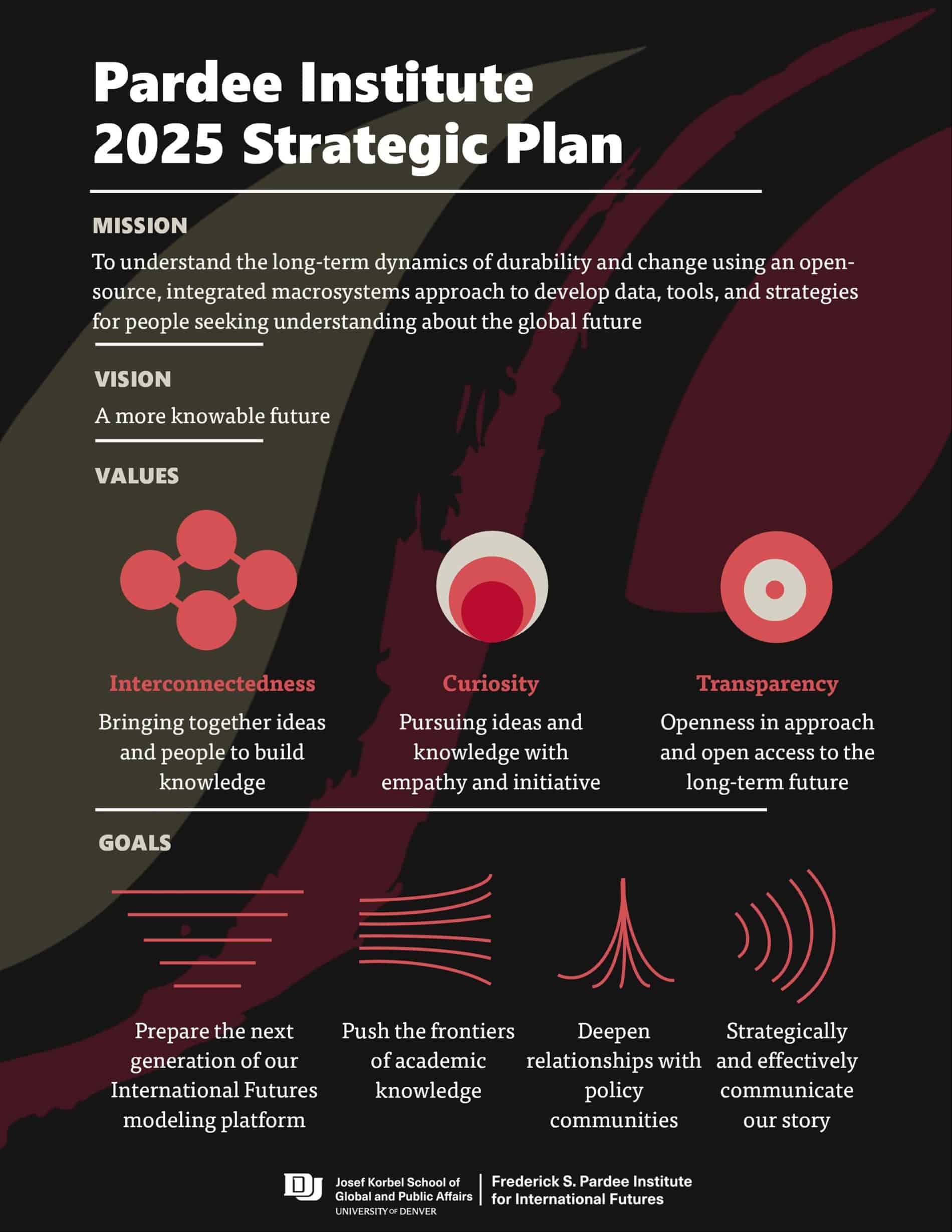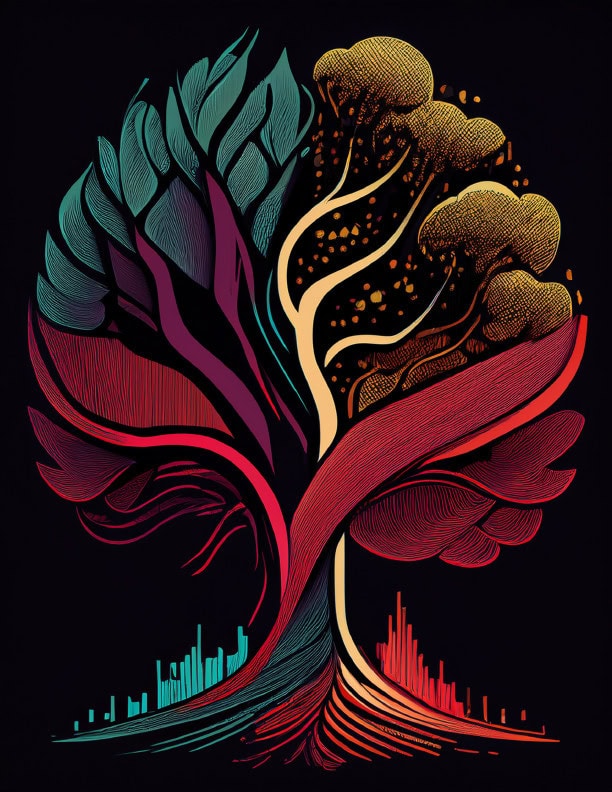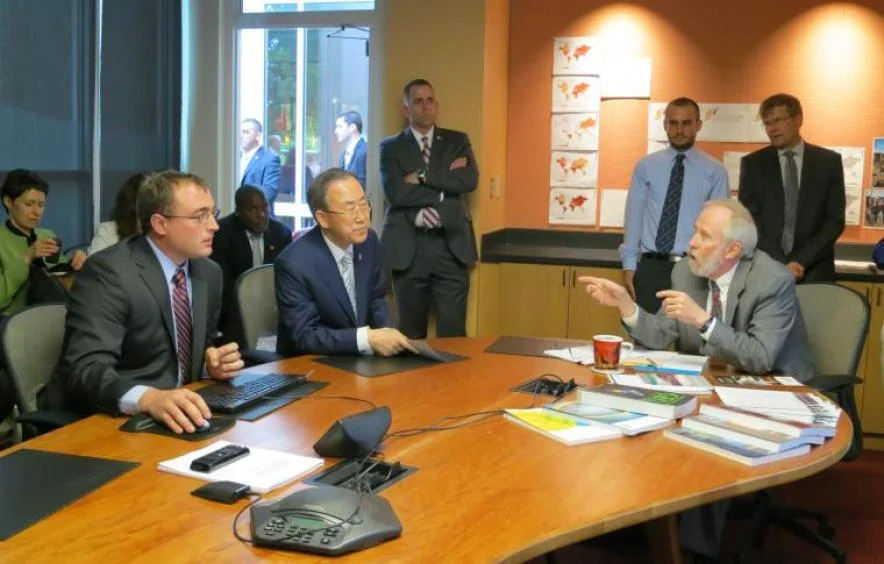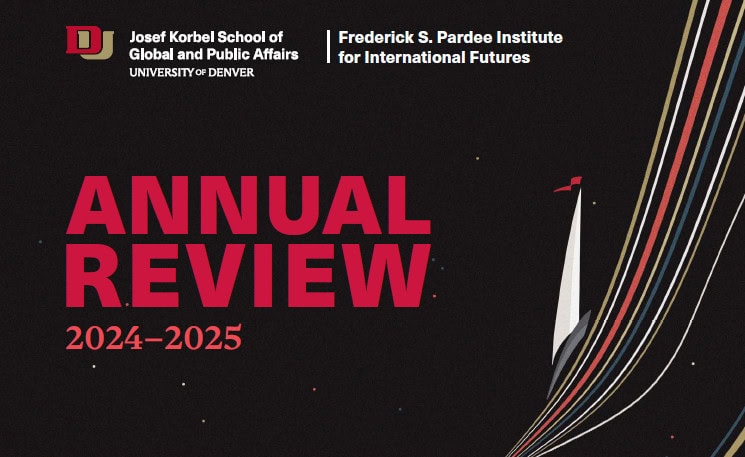Secure your scholarship offer in just 2-3 days through December 17! Get started.
90% of applicants who apply by the priority deadline receive scholarship support. Apply now!
Now accepting applications for Fall 2026. Apply now!
Pardee About
Secure your scholarship offer in just 2-3 days through December 17! Get started.
90% of applicants who apply by the priority deadline receive scholarship support. Apply now!
Now accepting applications for Fall 2026. Apply now!
Pardee About
These questions guided the Pardee Institute's 2025 strategic planning cycle, enabling us to strengthen our value system and establish a framework for fulfilling our mission and achieving our vision during uncertain times.
Building on the foundation of its predecessor 2020 five-year plan, this plan honors the continuing core identity of the Institute, staying rooted in what makes our work distinctive and useful, and distilled for practicality and purpose. Our mission, vision, values, and goals that will guide our work over the next five years are illustrated in the graphic below.
The complete 2025 Strategic Plan details our primary motivations and our approach to strategic planning. It connects our institutional history to our vision for its future, explains the intention behind our mission, vision, values, and high-level strategic goals for this cycle, and reflects on our current position relative to these goals, as well as possible pathways to realize them.
Here, we are pleased to share our strategic plan, launched in the Fall of 2025, that serves as a statement of purpose and our decision-making framework through 2030.

At the Pardee Institute, our commitment to building a more knowable future is not just a vision; it is a mandate embedded in how we operate and in the values we share.
We fulfill our mission by supporting a global network of individuals and institutions seeking deeper insight into the forces shaping our collective future.
Expanding our footprint within this community—and increasing the accessibility and impact of our work—is central to achieving that vision. This is our guiding principle.
Credits | Design concept for values and goals by Eighty2degrees Design Studio. Document design by the Pardee Institute.

The first part of our mission statement focuses on what we do, specifically, what makes our approach rigorous and unmatched.
We are an interdisciplinary research institute that is housed within academia. We host International Futures (IFs), the only open-source integrated assessment platform and forecasting tool that, in combination, (a) uses a hybrid approach of systems dynamics, econometrics, and other quantitative techniques; (b) incorporates and leverages over 5,000 historical series to analyze and forecast hundreds of interconnected, macro-level variables across human, social, and natural systems; (c) includes forecasts for 188 countries in one-year time steps from 2022 through the end of this century and beyond.
IFs forecasts across 11 dynamically connected submodules: agriculture, demographics, economics, education, energy, environment, governance, health, human development, infrastructure, and international relations. By integrating these systems, IFs can simulate how changes in one system may lead to changes across all systems.
We believe that the true value of models lies not in predicting outcomes, but in shaping how we think about and understand the future. Long-term integrated models equip us to identify and analyze the fundamental forces that drive change over the coming decades. At the same time, they offer a structured approach to navigating uncertainty, enabling scenario-based analysis that informs policy decisions and more resilient planning.
By including historical data series from 1960 onwards, we can examine past trends to anchor our understanding of our current trajectory, of how human, social, and environmental systems interact over time, and of how we think about and address the “grand challenges” awaiting the global community. This is core to our approach to building knowledge about the future.
We also seek to better understand and measure bilateral and multilateral state relationships by gathering data, building analytical tools, and conducting analysis. This area of our research identifies international interactions that measure the depth and breadth of political, diplomatic, economic, security, and cultural ties between countries. Parts of this workstream are integrated with IFs, while others stand alone as entirely separate datasets and tools.
Our research approach is grounded in empirical evidence. It is designed to study the structural drivers of change and durability, particularly in the context of development, climate change, and international relations. We are committed to transparency because we believe in democratizing access to knowledge about the long-term future, making it available to everyone and not hidden behind paywalls and other barriers to understanding. We recognize that the complexity of our model presents practical barriers to entry, and this plan aims to address some of them.
In addition to access, transparency facilitates a core tenet associated with academic rigor: reproducibility. This openness enables broader scrutiny, collaboration, and application across both scientific and policy communities, reinforcing the credibility and utility of our work.
We build scenarios grounded in an understanding of the interconnectedness among the relationships represented in our model. This sets us apart from others in the field: IFs forecasts are integrated across various issues, rather than focusing on each issue in isolation. Additionally, we can broaden or narrow our long-term forecasts to encompass global, regional, and country-level perspectives.
We have three interconnected research workstreams: development analysis (also called sustainable development), geopolitical analysis, and model development. Through development analysis, we model scenarios across a range of cross-cutting issue areas, including education, health, infrastructure, and poverty. Likewise, geopolitics is heavily influenced by interconnected systems and intersecting levels of analysis, which are reflected in our data building and scenario work, including how development trends may affect national power and influence. Our work enhancing the IFs model, which involves model and systems development, is the engine that powers these research activities..
We evaluate policy alternatives in a world where resources are constrained and policy objectives sometimes conflict. We develop policy strategies that are grounded in this reality, guided by curiosity (a core value) about experiences and impacts, and shaped by the needs and perspectives of those we serve and their constituencies.
Since our founding, individuals and organizations looking to build understanding about the future have consistently turned to us for our data, tools, and strategic insights. IFs is designed to help users understand dynamics within and across global systems and to think systematically about potential trends, development goals, and targets. People invested in our global future are at the heart of who we serve.
We wrote about this in our 2020 mission statement, identifying “policymakers, academics, and others seeking to improve the ways we contemplate and plan for the global future” as our core group of stakeholders. Our 2025 mission statement streamlines the language while expanding our reach to all people who approach decision-making with a forward-looking mindset.
With IFs, we aim to enhance the mental models that underpin pivotal decisions influencing sustainable human and social development worldwide. We support a global community tackling today’s most consequential issues—from climate and conflict to development and security. Through our data, tools, and analysis, we aim to amplify the missions of our collaborators and partners who address these challenges.
Aside from our targeted collaborations with intergovernmental organizations, governments, nonprofits, and others in our sponsored research portfolio, we also use our discretionary funds—provided both by Mr. Pardee’s generosity and separate research flowback revenues—to expand and enhance our research and tools that are accessible to the general public. While academics and policymakers play essential roles on the front lines in shaping our future, they are not the only ones invested in it. With IFs, we equip any forward-thinking individual with actionable knowledge to help influence future global, long-term outcomes.


This report captures our significant achievements from the past year, shares highlights from our research, and celebrates our students and staff. This year has been especially noteworthy as we formally became recognized as a research institute by the University of Denver, our home institution. To learn more about the importance of this new distinction and what it means for Pardee’s future direction, check out our report.
IFs distills long-term change down to a set of rules that simulate the interaction of economies, societies, and the environment over long time horizons, making it possible to plan for future outcomes.
Copyright ©2026 University of Denver | All rights reserved | The University of Denver is an equal opportunity institution